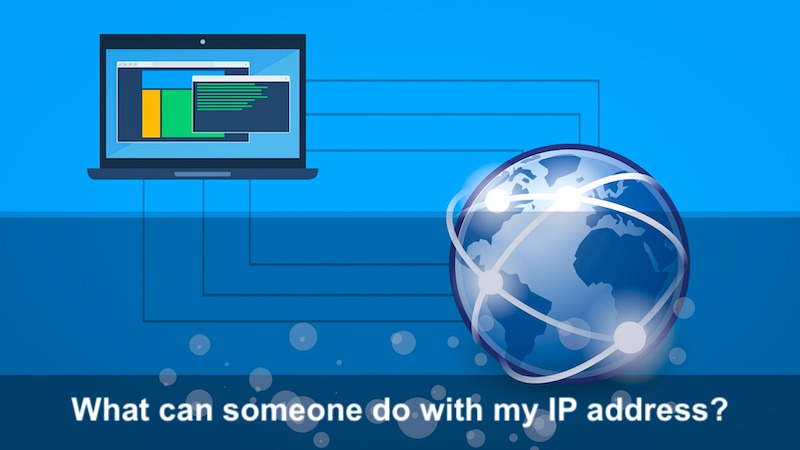
Picture your daily grind but with a twist - the freedom to work from anywhere. It's not just a dream; it's the evolving reality of remote work. Now, IP geolocation emerges as the invisible hand that guides this transformation.
Consider its role in tailoring online experiences: Why should virtual offices be any different? Geolocation is reshaping remote work technology - fine-tuning accessibility and ensuring compliance, no matter the latitude or longitude.
To hit the nail on the head, let’s delve into how IP geolocation is not just mapping our physical location but charting the future of remote work.
Unlocking the Global Office Door
Remote work hinges on connectivity; enter IP geolocation. It does more than pinpoint your locale on a map. This technology is the gatekeeper for a global, virtual office where opportunities knock without borders.
Geolocation services excel by customizing user experience, considering time zones and local regulations. So you log in from Lisbon or Lansing and the interface greets you with relevant information.
This isn't about mere convenience - it's transformative. Advanced geolocation weaves together disparate threads of a worldwide workforce into one seamless tapestry.
The Compliance Conundrum
Navigating the legal labyrinth of international work laws is a daunting task. IP geolocation technology steps in as a cautious guide, meticulously steering companies through compliance with regional labor laws and data privacy regulations.
Transparent operations across various jurisdictions are ensured, as employers fine-tune policies to align with local mandates - a vital step for multinational entities. This precision fosters trust and adherence, critical components of remote work infrastructure.
In practice, consider an employee in South Africa receiving Dell laptop specials tailored to local market conditions - all thanks to IP geolocation ensuring deals comply with regional commerce laws while remaining competitive.
Empowering Employee Engagement
The sophistication of IP geolocation empowers businesses to drive employee engagement, magnifying productivity and satisfaction in remote work settings. By discerning user location, companies can personalize interactions and resources, thereby making every online workspace feel like a home office tailored to individual needs.
As might have already been hinted, this happens through:
- Time Zone Synchronization: Aligns work schedules with local times, avoiding meeting requests at odd hours.
- Localized Content Delivery: Ensures workers receive region-specific news and updates, fostering relevancy.
- Network Performance Optimization: Adjusts server connections based on geography for smoother video conferences and data transfers.
- Cultural Customization: Celebrates local holidays and events within the digital workplace, promoting inclusion.
- Security Protocols Enhancement: Tailors cybersecurity measures by analyzing threats pertinent to each geographic area.
Geolocation-Driven Workforce Analytics
With IP geolocation, businesses acquire a bird's-eye view of their workforce distribution. This visibility is not just about dots on a map; it's actionable intelligence that drives strategic decision-making.
Harnessing these analytics leads to optimizing resource allocation - ensuring the right tools are in the right hands. Teams from Toronto to Tokyo can work harmoniously with access parity.
Moreover, this data aids in unveiling trends and identifying potential markets, enriching expansion strategies. In essence, geolocation becomes a lighthouse, illuminating paths for growth and innovation in the remote work arena.
The Future is Now: Geolocation at Work
As remote work becomes the norm, IP geolocation stands as a bedrock for emergent technologies. It fosters a dynamic where employees aren't just working remotely; they're seamlessly integrated into a digital ecosystem.
The future it molds is one of smart offices - interactive and responsive to each user's location. This isn't science fiction; it's the trajectory we're on.
Such advancements promise more than productivity gains; they hint at a world where work-life balance is geographical, not just temporal - a promising horizon for the ever-evolving landscape of employment.
Leveraging Geolocation for Enhanced Security
In the digital workspace, security is paramount. IP geolocation plays a pivotal role; it's the watchful eye over the vast landscape of remote work, discerning friend from foe with location-based intelligence. This approach to cybersecurity isn't just preventative - it's strategic. By analyzing access requests through the lens of geolocation, anomalies become stark, and protective measures can adapt in real time. It is defense, tailored to an ever-shifting battlefield where threats know no borders.
Key benefits include:
- Risk Assessment by Region: Identifies potential threats tied to geographic hotspots.
- Access Control: Restricts login attempts that originate from atypical locations.
- Fraud Detection: Flags transactions that deviate from a user's typical geolocation patterns.
- Regulatory Compliance: Assists in meeting data sovereignty requirements for certain jurisdictions.
- Incident Response Coordination: Enables swifter action by correlating security breaches with geographic data.
Through these points, we glimpse at how crucial and integral IP geolocation technology is - transforming not only our work but also fortifying its very fabric against intrusions.
Conclusion
IP geolocation isn't merely a background utility. It’s the compass for remote work's journey forward. As companies and employees navigate this changing landscape, tech is the constant - unlocking potential, reinforcing security, and sculpting the future of work with precision. It’s definitely something to embrace as your ally in this digital evolution.
Share this post
Leave a comment
All comments are moderated. Spammy and bot submitted comments are deleted. Please submit the comments that are helpful to others, and we'll approve your comments. A comment that includes outbound link will only be approved if the content is relevant to the topic, and has some value to our readers.





Comments (0)
No comment